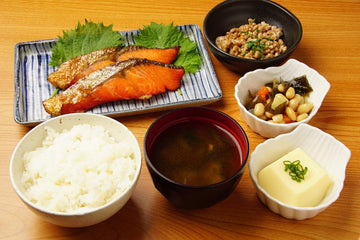

The Worst Fats for Your T Levels
Table of Contents
The Fats that Kill Your Gains
by: Robbie Durand
Fats are important constituents of our diet and, beside their functions as sources of energy and carriers for fat-soluble vitamins, they supply essential fatty acids that are vital components of cell membranes and precursors for hormones such as testosterone. Fats are necessary for optimal testosterone production, but there is one fat you need to avoid if you want optimal testosterone production…Trans-Fatty Acids or hydrogenated fats.
Trans fats (or trans-fatty acids) are created in an industrial process that adds hydrogen to liquid vegetable oils to make them more solid. The primary dietary source for trans fats in processed food is “partially hydrogenated oils.” Trans fats give foods a desirable taste and texture. Many restaurants and fast-food outlets use trans fats to deep-fry foods because oils with trans fats can be used many times in commercial fryers. Many cheap, packaged foods are full of trans fat (i.e. low cost microwave popcorn, and peanut butter), as are many frozen foods (such as frozen pizza, packaged pastries, cakes, etc.). Fried foods are often cooked in trans fat.
Most of the research has reported that saturated fats have a positive impact on testosterone, trans fats have a negative impact on testosterone. The good news is that the FDA is banning the use of partially hydrogenated oils, the main source of artery-clogging artificial trans fats, in processed food. Food makers will have 3 years to remove partially hydrogenated oils from products, according to the recent FDA ruling. Given that the FDA’s statement says that “there is no safe level of consumption of artificial trans fat.” Scientists are well aware of the negative risks on trans-fatty acids on heart disease, but a lesser known role is the effect on testosterone levels. In addition, experimental evidence in rodent models suggests that intake of trans fats can cause impaired spermatogenesis and testicular damage.
Here is a 1976, 1989, and 2007 study on Trans fats and Rats:
Wistar rats were fed for three successive generations on a semi-purified diet, in which the fat was provided by butter, sunflower oil, rapeseed oil or hydrogenated vegetable fat, differing in the content of cis,cis-18:2 and trans-18:1 fatty acids. Effects of these fats on the composition of adipose tissue and reproductive performance were studied. Hydrogenated fat decreased the level of serum testosterone in male rats. Furthermore, this type of supplementation with trans-fatty acids leads to a number of adverse male reproductive outcomes including decreased fertility, decreased serum testosterone levels, decreased sperm count, motility and normal morphology and, in extreme cases, arrest of spermatogenesis and testicular degeneration.
A 2013 study in Spain with over 2019 men reported that trans-fatty acids reduced sperm quality in young men. Spain has seen an increase in the proportion of calories consumed as fat over the same period that a downward trend in semen quality has been observed. In addition, rodent models suggest that trans fat intake may severely affect testicular function. Researchers recruited 209 healthy young university students, 18–23 years of age, each provided a semen sample and completed a previously validated food frequency questionnaire. The association between intake of fatty acids with semen quality parameters (sperm concentration, motility, morphology and total count) was assessed using multivariate linear regression. At the end of the study, Trans-fatty acid intake was inversely related to total sperm count after adjusting for potential confounders. Intake of trans-fatty acids, primarily derived from french fried potatoes and commercially baked items, was inversely related to total sperm count. Intake of other fatty acids was not significantly related to semen parameters. This means the more trans-fatty acids the young men consumed, the less sperm production they had.
The results of this study, together with previous experimental work in rodents and biomarker studies among infertility patients, suggest that intake of trans-fatty acids may be related to lower semen quality. Although the data provide further evidence that diet is a modifiable factor that could impact male fertility, it is not known whether the observed differences in sperm count translate into differences in fertility.
So the bottom line is, avoid fast food restaurants at all costs because they are the primary sources of trans-fatty acids in their foods.
Chavarro JE, Mínguez-Alarcón L, Mendiola J, Cutillas-Tolín A, López-Espín JJ,
Torres-Cantero AM. Trans fatty acid intake is inversely related to total sperm
count in young healthy men. Hum Reprod. 2014 Mar;29(3):429-40. doi:
10.1093/humrep/det464. Epub 2014 Jan 12. Erratum in: Hum Reprod. 2014
Jun;29(6):1346-7.
Jensen B. Rat testicular lipids and dietary isomeric fatty acids in essential fatty acid deficiency. Lipids 1976;11:179-188.
Hanis T, Zidek V, Sachova J, Klir P, Deyl Z. Effects of dietary trans-fatty
acids on reproductive performance of Wistar rats. Br J Nutr. 1989
May;61(3):519-29.
Veaute C, Andreoli MF, Racca A, Bailat A, Scalerandi MV, Bernal C, Malan Borel I. Effects of isomeric fatty acids on reproductive parameters in mice. Am J Reprod Immunol 2007;58:487-496.

















